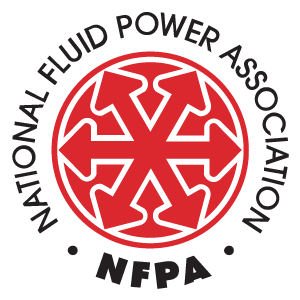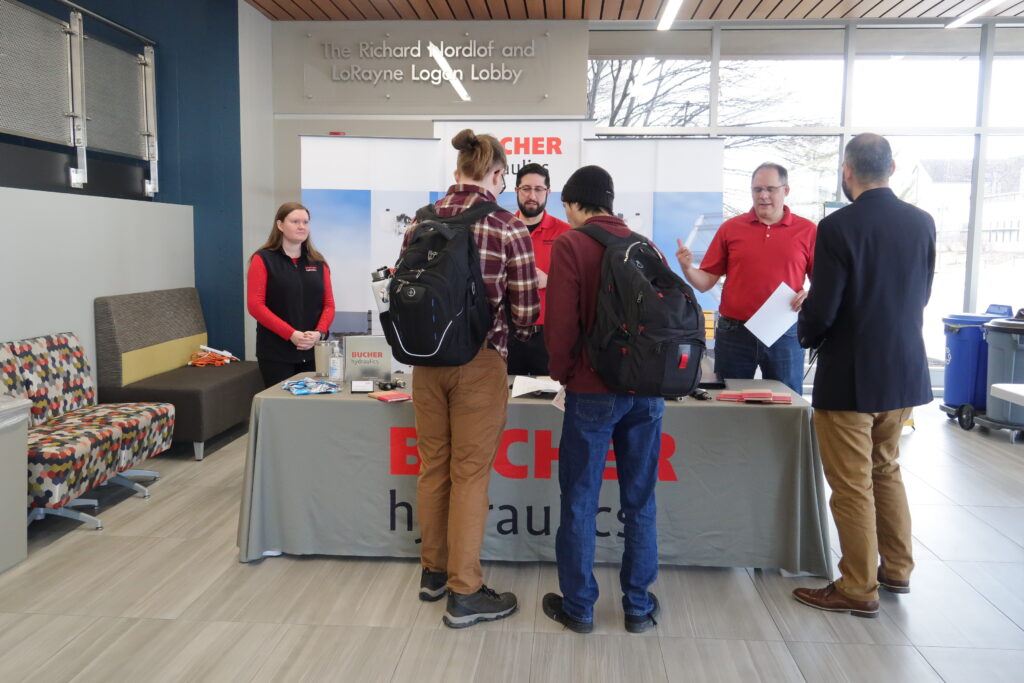Programs like the NFPA Research Supplement Program are made possible in part by the generous support of industry volunteers as well as NFPA Education and Technology Foundation and Pascal Society donors.
 By Eric Lanke
By Eric Lanke
NFPA President/CEO
I recently attended the June 2019 Summit of the Center for Compact and Efficient Fluid Power (CCEFP) at Purdue University. This was the second of two meetings in our last fiscal year where the fluid power research projects supported by our new NFPA Research Supplement Program were presented.
In our efforts to increase the number of university students educated in fluid power, the NFPA Education and Technology Foundation provided ten $10,000 research supplements to ten academic faculty members working on fluid power research at six universities. This helps to engage current and build the careers of future university faculty who are and will be in a position to teach fluid power to undergraduate engineers on their campuses. The research supplements provide travel support so that each faculty member and one of their graduate students can attend to present their research at designated industry conferences and research summits like the one hosted by the CCEFP.
One such faculty member is Professor Thomas Chase of the University of Minnesota, whose graduate student, Alissa Montzka, presented on their project, “High Efficiency Hydraulic Pump-Motors Employing Partial Stroke Piston Pressurization,” at the CCEFP Summit. The goal here, as I understand it, is to use a mechanical control function, in the form of specially designed spool valve instead of an electronically controlled swashplate, to gain greater hydraulic pump efficiencies from the use of partial stroke piston pressurization (PSPP). Working with funding provided by the National Science Foundation, Montzka and her team have been able to build a test stand that allows them to measure the pressure inside their prototype at both high and low displacements – where they hope to validate a greater efficiency using PSPP at low displacement. Theoretically, that should be the case, as PSPP only pressurizes the piston for a portion of each power stroke, avoiding many of the internal losses usually seen. Their initial data is as of yet inconclusive, but they will be working to adjust and validate the theory before beginning to use their device as a motor and then using the data gathered in that application to build an improved, second generation prototype.
A copy of Montzka’s presentation slides can be accessed here.
Collectively, the research projects supported by NFPA Research Supplements represent more than $4.9 million in funding from a variety of organizations, including the U.S. Department of Energy, the National Science Foundation, and the Center for Compact and Efficient Fluid Power (CCEFP). They are an excellent sample of the growing body of fluid power research being funded by the federal government and other research organizations.
[panel style=”box”]
Learn More About Pre-Competitive Fluid Power Research
See live presentations about this project and others like it at the upcoming CCEFP Summit, taking place October 22-24, 2019 at the University of Wisconsin-Madison. Registration for the event closes October 11, 2019.
[/panel]
Like this post? Share it!
Recent Posts
Fall 2024 Fluid Power Recruitment Event with NIU
RSVP for our Fall 2024 Fluid Power Recruitment Event with Northern Illinois University (NIU). NIU is one of seven universities recognized as a Power Partner, teaching fluid power competencies and engaging in all NFPA educational programs. At this event, your company will have the opportunity to connect directly with NIU engineering students. Engaging in meaningful conversations,…
Now Announcing: Cuyahoga Community College as a Fast Track Hub in Ohio
NFPA’s Fast Track to Fluid Power is a workforce development pathway that partners local technical colleges with fluid power industry members and high school teachers. These networks create awareness and interest in fluid power and train students along a path that leads to careers in fluid power at NFPA member companies. We are pleased to…
Now Announcing: Houston Community College as a Fast Track Hub in Texas
NFPA’s Fast Track to Fluid Power is a workforce development pathway that partners local technical colleges with fluid power industry members and high school teachers. These networks create awareness and interest in fluid power and train students along a path that leads to careers in fluid power at NFPA member companies. We are pleased to…



